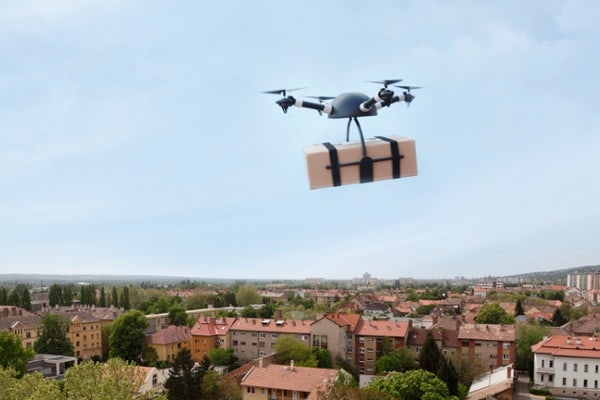Zhang, team work to keep cyberphysical systems secure, predictable
Ning Zhang is part of a multi-institutional team working to improve security and reliability of cyberphysical systems, such as delivery drones and self-driving cars

Computer-driven systems that used to be considered the stuff of science fiction are becoming reality: package delivery by drones, self-driving cars, and chips implanted in human brains in an effort to solve neurological problems. But keeping these cyberphysical systems secure from attacks and able to operate in real time is no easy feat.
Ning Zhang, assistant professor of computer science & engineering in the McKelvey School of Engineering at Washington University in St. Louis, is joining a multi-institutional team of computer scientists that plans to improve and balance the real-time predictability and security of cyberphysical systems (CPS) with a three-year, $1.2 million grant from the National Science Foundation. Zhang is one of five co-investigators on the project, led by Thidapat (Tam) Chantem at Virginia Polytechnic Institute and State University.
“From my perspective, CPS is going to be more and more important for society and for the benefit of individuals,” said Zhang, who is a member of WashU’s Center for Trustworthy AI in CPS. “When it becomes connected to our bodies, it is much more important in terms of security. That is the motivation for starting this work.”
The team will work to design secure real-time cyber physical systems that are easier to analyze and more reliable for the defense, medical, transportation, manufacturing and agriculture industries, among others.
Zhang said predictable behavior is important for safety in CPS.
“If you are driving a car, you want to know that when you step on the brake, the car is going to stop, or at least attempt to come to a stop,” he said. “Often when you add security to that, it becomes harder, because security adds overhead, and sometimes it’s context dependent. We want to learn how to balance the two.”
For security, Zhang said randomized behavior is also important.
“If an attacker is trying to hit you, you don’t want it to know where to shoot,” he said. “This is known as the moving target defense, or cyber deception. To balance these two, where we create some randomness in CPS with formal guarantees, we want to know how that impacts the predictability of the system.”
The team also will look at recovery from attacks.
“Recovery needs to be harmonized with the predictability,” Zhang said. “If a drone is already crashing, we have still have control over four propellers, so we wouldn’t go into recovery mode yet. We can raise the altitude of drone before we kick in recovery so we can safely land.”
Recovery will be built into each system and designed ahead of time, Zhang said.
“Our project aims to develop technology, but also to push this technology to the limit and see where it breaks so that the broader community can build on top of our results and make an informed decision,” he said.




